Enterprises' moral crisis: the various controversies
How We See It 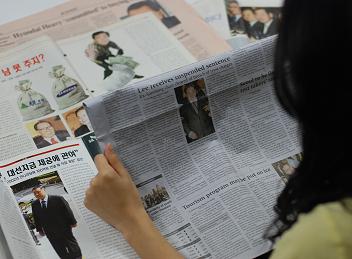
Enterprises’ moral crisis: the various controversies
TOP KOREAN conglomerates have been a realm of dreams for many university students. The former Chairman of Samsung, Lee Kun-hee, rated the most respected CEO, and Samsung Electronics ranked the most desirable work place among students (October 2007, University News Network). However, after lawyer Kim Yong-chul (former lawyer for Samsung)’s shocking allegations of corruption and irregularities, large enterprises now seem to be embroiled in dishonorable controversies involving public opinion. Recent pardons issued on the Independence Day of Korea, which included 74 business figures, seem to have worsened this concern even further.
Public interest in enterprises’ irregularities came to the surface as Kim insisted Samsung has continuously bribed prosecutors and judicial figures, confessing that he had managed slush funds directly when he worked there. Now, such discussion has moved on to an argument regarding the court’s ruling against those suspicions, and a pardon for business figures by President Lee’s government. However, as hot as public interest is, conflicts within the public also seem to be intense. Subsequent to the issues above, the public is divided into two opposite sides: either for or against.
For many other related issues, such as whether the press is reporting fairly about enterprises or not, and whether the government’s business-friendly policies are appropriate, there has also been controversy so far, which has not yet earned public agreement.
Amid this argument, The Yonsei Annals took an opportunity to gather Yonseians’ general thoughts about the controversial issues above. From Aug. 18 to Aug. 26, 1,005 Yonseians were surveyed via e-mail questionnaires about what they think about enterprises’ corruption allegations, as well as the overall countermoves of related bodies, in categories such as the court’s verdict, the tone of the press, and government policies towards enterprises.
Judicature’s verdicts
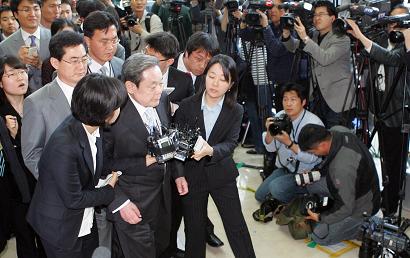 | |||
| [YONHAP] |
Song Ho-chang (Deputy Secretary, MINBYUN; Lawyers for a Democratic Society) criticizes the ruling, pointing out insufficient investigation by the special prosecutors from the beginning. “From the start, it was hard to expect an impartial investigation involving Samsung. The overall investigation procedures of special prosecutors were not
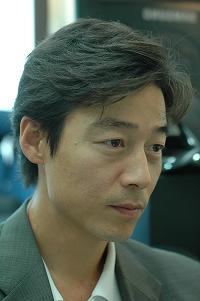 | ||
| Song Ho-chang (Deputy Secretary, MINBYUN; Lawyers for a Democratic Society) | ||
Addressing the argument as to whether indulgence for business figures should be allowed, considering their contribution to economic growth, 45.47% were against and 11.04% were supportive. Students also think the irregularities of enterprises or business figures should not be allowed leniency, even if they contribute to revitalizing the economy (44.56%); though 8.35% of respondents said they should be given worry. Concerning these issues, Song says, “Constitutionalism and economic growth can be compatible. Enterprises should be managed transparently and gain credibility in a fairly managed market in order to have investments flow in, so that enterprises can grow.”
The overall tone of press reporting
Regarding the conglomerates’ scandals, Korean press’ reports can be classified into two groups. One group represents media that mostly produce progressive report with a critical stance against enterprises. On the contrary, conservative media report in a business-friendly tone throughout their articles are not so critical. The way of expressing each media group’s tone is mostly determined by the position of the article, the impression of the headline, or sometimes direct opinions published in editorials.
The Annals asked Yonseians which media they trust in reference to the subject of conglomerates’ scandals. It turned out that Yonseians generally do not trust press reports. A total of 20.89% of the respondents do not believe in any media reports regarding businesses, and also not a single media source gained confidence from over 40% of the students. However, there were some differences according to each media faction. Media that are considered to be progressive in general gained relatively large credibility from the respondents, but so-called conservative media obtained very low reliability ratings compared to progressive media.
Yonseians also expressed distrust for the press regarding business reports, as 63.06% of the respondents said they do not think all of the irregularities and allegations against enterprises have been reported through the media. Only 2.38% said they think the press has reported all the issues about enterprises’ scandals. Lee Sang-ho (Reporter, MBC), who is famous for his Samsung X-file report, says “Accidents and events related to enterprises are not being reported as they should be. In the early stage of the Taean oil spill accident, even the fact that one of the ships which caused the collision belonged to Samsung Heavy Industries could not be reported.” A Korea Economic Daily reporter, who requested anonymity, says “Media cannot be fully free from enterprises’ influence, because most of the press’ earnings depend on their advertisements. However, under that circumstance, reporters try to be as objective as they can.” He also added, “Since business figures generally have a sense of duty for Korea’s economic stability and growth, it is hard to just criticize them. Criticizing is easy, but reporters consider the broader perspective, encouraging businesses to revitalize the economy as well as objectively showing the facts to people.”
Government’s enterprise policies
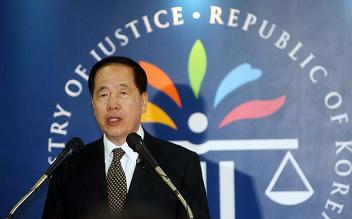 | ||
| [YONHAP] |
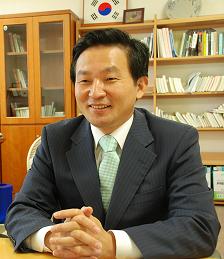 | ||
| Won Hee-ryong (Member of National Assembly, Grand National Party) |
About the business-friendly policies of Lee’s government, there is a wide difference in opinions among a large number of Yonseians. 52.59% were supportive, and 48.00% were against, according to the survey in last April’s issue of the Annals (“The Five Years Ahead,” April, 2008). Regarding this, Won gives a new viewpoint, saying “Putting aside the criticism that business-friendly policies are biased toward conglomerates, the problem is that those policies’ influence on economy is meager. To motivate economic growth, they need to be converted into a new model that can bring a development.”
A wide gap between students and the current state
The Annals asked Yonseians what the most urgent task for enterprises is. It turned out that they want enterprises to eliminate corruption (17.51%) the most, fulfill social responsibility (15.12%), and increase job openings (13.63%). Considering our current economic recession, the result is somewhat surprising. It seems that recent conglomerates’ corruption allegations have had a strong impact on students, even amid the depression.
However, despite students’ opinions, the current reality seems totally different. Many things that are against the will of students have been done, sometimes with the justification of economic growth. Throughout the survey, most Yonseians tended to be negative or indifferent to the current state and issues related to the judiciary, the press, and the government. People argue that constitutionalism is getting damaged and government is not standing neutral against enterprises; 58.40% of respondents have doubts about the cozy relations hit between politics and business. When considering those three bodies’ significant roles in Korean society, discord between them and university students looks very serious.
* * *
It is true that enterprises have contributed to boosting the Korean economy, as well as improving living conditions in Korea in the past few decades. Accordingly, Koreans still take pride in themselves while traveling to foreign countries, seeing Korean enterprises’ splendid signboards even amongst the controversies surrounding enterprises. To meet our people’s expectations and hopes, it seems to be the right time for enterprises, the judiciary, press, and government to move forward toward change. When they try to give trust to people and people can fully trust them, the real prosperity that many dreams of might eventually arrive.

